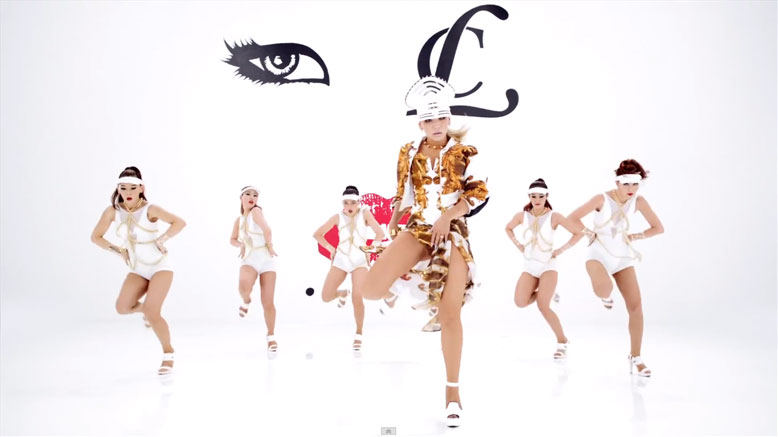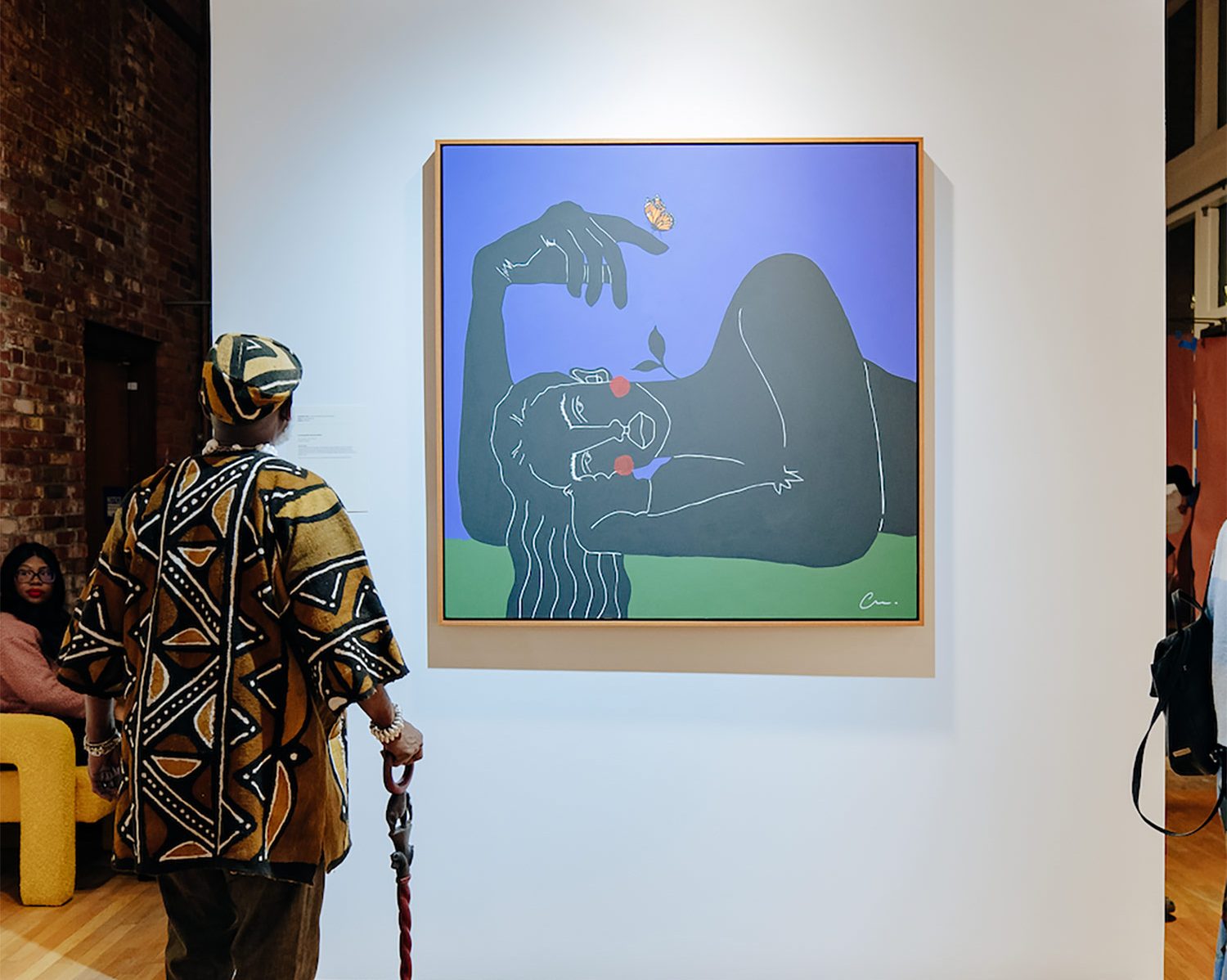Transcription of Fantastic Baby Discussion Panel (Cont’d): Audience Q&A
What about North Korea?… What about North Korean pop?
Allen Huang: I actually just read a thing where Kim Jong-Un made a pop band, and he wrote a lot of the lyrics, and he praised them for their beauty and their harmonies. And, I mean… so North Korean pop actually sounds a lot like the trot music that South Korea is still fairly obsessed with. And — I don’t know a ton about North Korean pop; I probably know as much as anybody who can follow them on the internet, with the three or four articles on that stuff that you can find. But they are probably what it would be like if the pop world did bow to social conservatism.
Ingmar Carlson: Yeah, it’s about as close as you can get.
Allen Huang: It’s just kind of — the lyrics are basically, “Praise the good leader; the country’s great. Everything is great. Have a good time, but don’t have too good a time.” And doing it in the biggest amphitheatres for the biggest crowds possible. And they’ve got girls playing the violin; girls playing the piano; girls doing everything. You know, it’s like, these are the nation’s fruits, and we should love them for that. But I think the North Korean pop that came out in 1990 is the same as the North Korean pop coming out in 2012. So I don’t think there’s much evolving there, much like there’s nothing much evolving there politically.
Ingmar Carlson: Politically, culturally.
Allen Huang: They know what they like, because they’re told what they like.
Vivian Hua: I just wanted to mention — like a decade ago, I saw a video of a South Korean band called ShinHwa — who are still kind of around now — but um…
Ingmar Carlson: Yeah, they’re coming back.
Vivian Hua: They played a show in North Korea, in the giant auditorium, and it was filled with people — but they showed cameras of people… and they were still wearing hanboks, which is traditional Korean dress, and were just dumbfounded. And even back then, it wasn’t as extreme as it is now in South Korean pop, but they were just completely stone-faced and did not understand at all what they were seeing.
Allen Huang: I think the only reason they would ever invite ShinHwa up to North Korea would be to show how inferior they are to North Korean pop music. Just like, “This is what’s inferior. You’ve got a good thing going on. Stay up here; North Korea’s the best.”
Ingmar Carlson: Anything they bring into that country, really; the purpose is really to inflate North Korean egos and tell the population that, “This is what’s bad, and everything we do is good.”
Allen Huang: Thanks for the question.
Do any of these videos end up causing any sort of stir in the media? I’m thinking specifically the video with the lady shooting the dudes with the paint guns? Does that cause any sort of discussion about gun violence and stuff?
Allen Huang: Oh, let me tell you about the ones that did cause controversy. They have nothing to do with the guns. The guns are all totally cool. The ones that cause the controversy are in the first half of that, where they’re showing a little more cleavage than they should, and those are up-in-arms, everybody’s going, “Why the hell are you showing this on TV? You can only show this between the hours of 4:00 and 4:05.” That’s one of the big things that drew me to K-Pop — the Hyuna controversy when “Bubble Pop” came out, and everybody just was like, “She’s a huge slut!” and you watch the video, and she is dancing in a onesie that doesn’t show any cleavage at all, and it’s like, “We have Crazy In Love,” and Lady Gaga, and they’re up in arms about this. There must be more to this story; let me spend five hours on the internet to figure it out.
Vivian Hua: What year was that?
Allen Huang: “Bubble Pop”? That was like, 2009. 2010? 2010.
Reese Umbaugh: There are also multiple music shows in South Korea that all of these artists perform on, and it’s pretty common for the girl groups to have performances banned because the dance moves are too sexy. But you know, that never happens to the boy groups.
Ingmar Carlson: You have to bear in mind that this is a country where, only a few decades ago, police were carrying around rulers in the street to measure the lengths of women’s skirts to make sure they weren’t too short. They were also giving free haircuts to men whose hair had gotten a bit shaggy. Complimentary haircuts from the police! Sounds like fun.
Allen Huang: I read a really amazing article about how legs are basically the cleavage of Korea. Basically, you can have really short skirts, and that’s the thing. Even in winter, when it’s really, really cold in Seoul, you wear a really short skirt to show off your beautiful legs, because that is basically — there’s no showing of [cleavage]; it’s all bottom half for them. It’s what’s acceptable, and what’s considered desirable.
That one video that got banned — Psy’s “Gentleman”… it’s like why?
Allen Huang: There was a question about how that last video — Psy’s new video, “Gentleman”, was banned in Korea from TV, and the reason was because he kicked that traffic cone.
Vivian Hua: And he owned the traffic cone.
Allen Huang: He owns the traffic cone. It’s his traffic cone; he can do whatever he wants with it. But they didn’t want to condone the destruction of public property. See, the guns are fine. It’s kind of a weird value system compared to what we have. What’s also interesting about “Gentleman” is… everyone’s waiting for “Gentleman” to come out, kind of a, “What’s he going to do next, after ‘GangNam Style’?” He does this video, and it’s basically an homage to the Brown Eyed Girls video “Abracadabra”, which was also banned due to sexuality, because people are getting whipped, and there’s sex slaves. Of course it’s going to get banned. And that was 2010, I think. And he goes out and he does the same dance that they’re doing, but he’s a dude, in harem pants, and so the dance doesn’t get banned, but then they find a reason to ban it anyway, with the cone. And so, it’s kind of funny. But I thought that was a really clever thing for him to do — just making that video, and making that song, just kind of… you expected him to go out and make the most global song he could make, but instead he goes and makes the most in-jokey song he can make. And it’s really successful, too, at least in Korea, and he invites GaIn on, which is one of the members of Brown Eyed Girls, and they have a fun time making fun of it. And I don’t know. He’s a smart guy like that.
Is there as much money put into the movie scene there as there is in the music scene?
Ingmar Carlson: I would say there’s quite a bit of money put into the movie scene. It’s part of this whole “Hallyu Wave”, which is actually a term the Chinese came up with to name this huge wave of Korean pop culture that’s swept up pretty much all of Asia. We’re sort of beginning to see with “GangNam Style” the very beginnings of that in the West, but K-Pop culture, in general, has been huge in Asia for a while. You have to bear in mind that a lot of this stuff is made for export — especially the music — not just for the entertainment of native Koreans. They’re really hoping to grab as much cash as they can from anywhere they can get it, and movies are huge, too. TV now, as well. I mean, you can watch K-Dramas on Netflix and on Hulu. It’s kind of crazy; there’s a whole section devoted to that on Hulu. There’s definitely a lot of money devoted to all that. As far as numbers are concerned, just with individual productions and how much money comparatively would be put into a K-Pop music video versus a TV show? I’m not exactly sure. Obviously a TV show is a bit more of an undertaking and you’re going to have to put more money in there, but the figures for music videos could be really extreme sometimes, comparatively. I don’t know. Does Jordan have anything to say about that?
Jordan Becke: The budgets of the TV — like with a lot of countries, the film industry in Korea is somewhat subsidized by the government. It’s something that happens in Canada and France, and lots of other countries. They also — getting exact numbers is not very easy — they also put lots of money into the music industry because the line between actual industries — like something like Samsung — and the actual music industry… like BIGBANG goes on tour, and it’s like, the Samsung tour? So there’s money coming into the pop music industry from multiple channels. Because of the interlaced way in which the government and a lot of cultural things is in Korea, it’s hard to know how much money there is or where it comes from, really, and there’s also definitely lots of overlap in some of the cinematographers that work in high-end Korean pop videos and films. I mean, you can tell. The longer-form videos with the clock face that tells more of a story… I don’t know about that particular video, but there’s people going back and forth between pop music and the film industry.
Vivian Hua: On that note, there’s also these really long eight-to-ten-minute dramas in music video form that are really amazing, and I would encourage you to check them out.
Allen Huang: I know the latest Prime Minister of South Korea ran on the platform about how she wanted to divert more of the funds into the music industry. I’m pretty sure they are pretty heavily invested, at least in the distribution portion of the film industry, in getting guys like ChanWook Park and Bong JoonHo’s movies out to the world, to festivals, and all sorts of other distribution. Now, since that kind of film wave has simmered down a bit, I think they’re trying to raise the profile of the music industry, as far as from a government funding standpoint.
Ingmar Carlson: I think a lot of that has to do with Psy, mostly.
Allen Huang: It’s all Psy. Psy for president.






